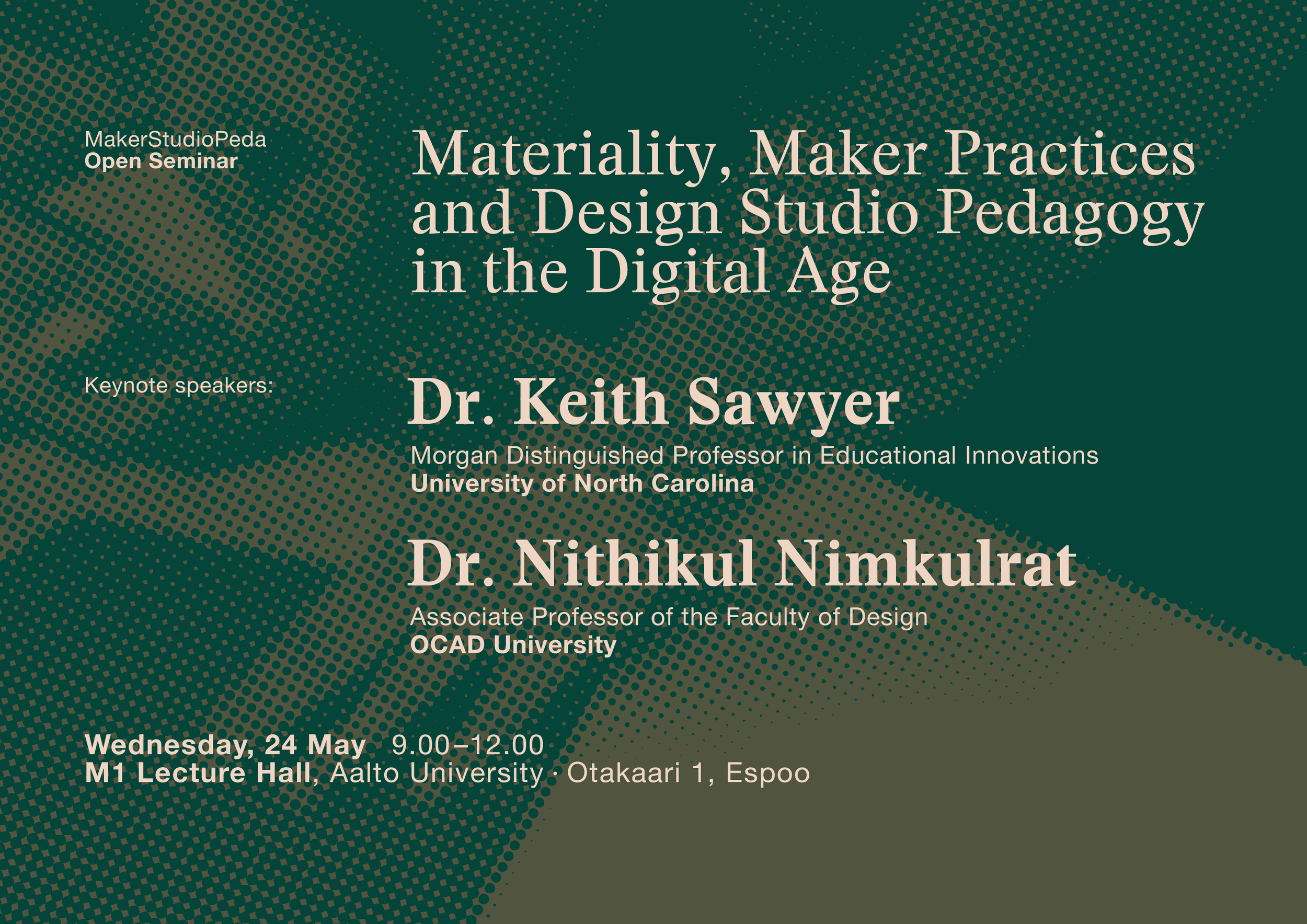EMIPRICA at the 2nd BICCS Conference
The 2nd Biennial International Conference for the Craft Sciences (BICCS 2023) took place in Mariestad, Sweden, from September 20 to 22, 2023. The conference is organized by The Craft Laboratory of the University of Gothenburg’s Science faculty and serves as a platform for communicating craft research within and beyond academia.
EMPIRICA in the NORDES'2023 Conference
The 10th Nordic Design Research Society (NORDES 23) Conference was organized by Linköping University in Sweden. The conference took place in the university’s Norrköping campus on 12–14 June 2023.
MakerStudioPeda Summer School, 23–29 May, 2023
From May 23 to 29, Helsinki, Espoo and Björkboda served as the backdrop for the MakerStudioPeda Summer School 2023, a week full of productive activities. The event saw the long-awaited opportunity for the whole research team to have their first in-person, completely offline group meeting.
MakerStudioPeda Open Seminar 2023
Join us for a seminar on creativity-oriented pedagogy in art and design universities, featuring keynote speeches by two leading experts in the fields of creativity research and artistic practice: Keith Sawyer and Nithikul Nimkulrat. The Seminar will take place on Wed, May 24 in Lecture Hall M1 (Otakaari 1).
VIII Art of Research Conference
The eighth Art of Research conference will be held from November 30 to December 1, 2023, at Aalto University, Espoo, Finland.
Upcoming defence of doctoral thesis: Relating to Clay: Tuning in to the Workings of the Aesthetic Dimension in Ceramic Practice — MA Priska Falin
MA Priska Falin will defend the thesis "Relating to Clay: Tuning in to the Workings of the Aesthetic Dimension in Ceramic Practice" on 21 October 2022 at 12:00 in Aalto University School of Arts, Design and Architecture, Department of Design, at lecture hall M1, Otakaari 1, Espoo, and online in Zoom.
Upcoming defence: Hanna-Kaisa Korolainen
MA Hanna-Kaisa Korolainen will defend the thesis "The Making of Inspiration - From Monet to Warhol" on 20 May 2022 at 12:00 in lecture hall M1 (M232) at Otakaari 1, Espoo, and online via Zoom.
Reflections on the Doctoral Defence: is it really over? by Bilge Aktas
After years of hard work and dedication, the defence is the time to discuss the research motivations, findings, and implications. Doctor of Arts Bilge Aktaş reflects on her experience of defending her dissertation.
VII Art of Research Conference
The seventh Art of Research conference will be held on 3-4 December 2020 in online mode. The theme of the conference “Authorship and Responsibility” addresses the varied collaborative and individual working situations of researcher artists, designers and architects.
Entangled Fibres: An examination of human-material interaction
Doctoral defence in the field of Design, MA Bilge Aktas: 26.11.2020 12:00–16:00.
Reading Circles
In Empirica, theoretical discussions and experiential knowledge form the two pillars of research by intertwining reading and making. To build a shared understanding of design and craft research we have been reading and discussing together through reading circles. The Matter Reading Group is organized around the topics of materiality and material engagement.
Shaping the Future Exhibition Opened in its Seventh and last Venue: The Museum of Decorative Arts in Prague
The seventh and last venue of the Ceramics and its Dimensions: Shaping the Future exhibition is at the Museum of Decorative Arts in Prague (Uměleckoprůmyslové museum v Praze / UPM). The exhibition is open in Prague between September 4th and November 11th 2018.
Matter Seminar
Recent endeavours have brought researchers and thinkers into questioning the propagated human-centredness in design in order to articulate new perspectives, knowledges and questions. Decentralizing the attention from the human actions, these approaches distribute the agency among other participating entities in order to better understand the field and its practices.












